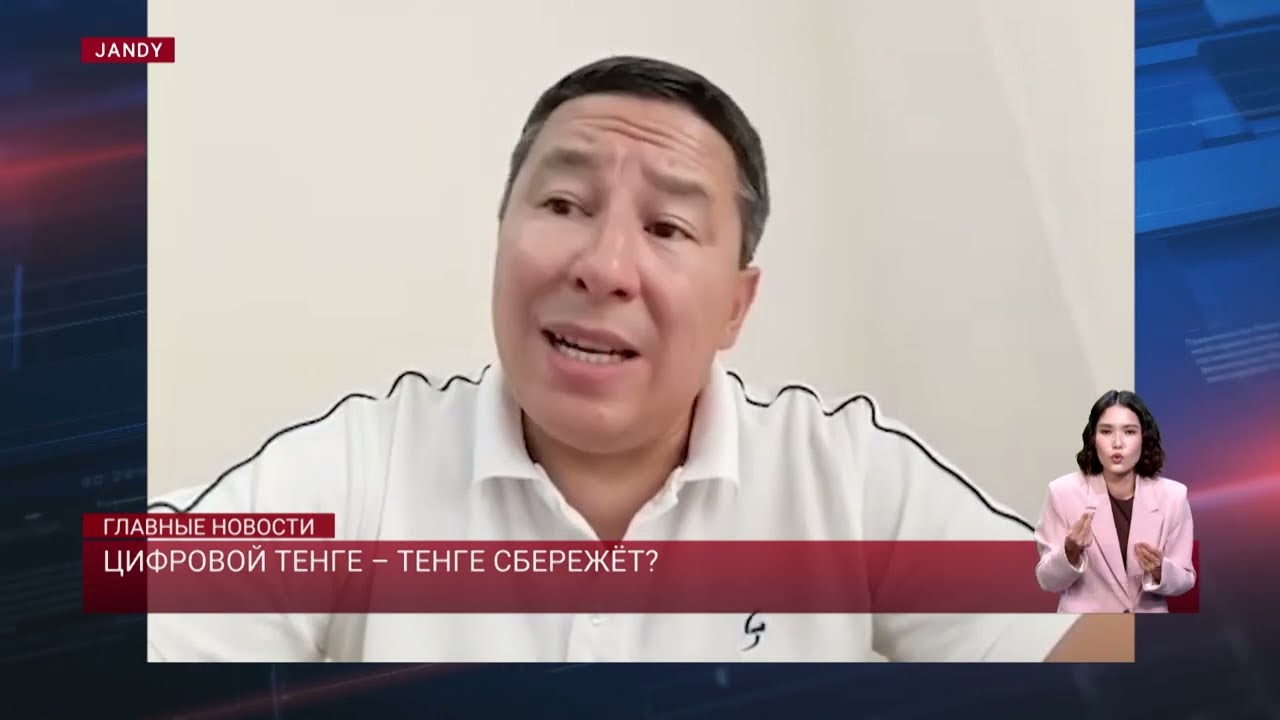To what extent the republic's budget is social and how corruption components reduce the effectiveness of government spending.
Increasingly, both legislative and executive authorities are discussing the budget deficit in Kazakhstan and possible ways to replenish or optimize it.
So, a week ago, Deputy Prime Minister and Minister of National Economy Serik Zhumangarin admitted that the country's deficit and debt servicing were "quite large" and warned regional mayors that approaches to determining the size of transfers from the state budget in the region would be tightened.
A little earlier, the Anti-Corruption Agency announced the results of monitoring public procurement in terms of inflating prices for goods, works and services. Antikor reported that in the five months of 2025, it was possible to identify such facts for 29 billion tenge, 6.4 billion of them were returned to the budget. The remaining amounts were reviewed by the customers. For some contracts, the planned prices were lowered, for others, the volume of purchased goods was increased.
To evaluate the effectiveness of the state budget of Kazakhstan, Informburo editorial office.kz suggested Askar Kysykov, Director of the Talap Center for Applied Research. He offered his vision of what should be done so that every tenge spent would really work for the future of the country. To close the budget deficit, the economist suggests channeling oil revenues to the republican treasury, "without sprinkling ashes on his head because of this." He considers spending funds from the National Fund for the needs of the country to be a normal practice.
– Askar Baurzhanovich, first of all, let's define what is meant by the social budget?
– Traditionally, these are expenses for social security, protection of the population, including pension payments, social benefits, targeted assistance, as well as for education, medicine and culture. The share of these expenses in the Kazakh budget is about 55-60%. However, there are costs in these areas that cannot always be called social, such as construction or the purchase of goods and services. In other areas – transportation, law enforcement agencies – there are also social expenses, including salaries of state employees and law enforcement officers.
Thus, social expenses can be considered as payments directed directly or indirectly to people. Direct payments are salaries of civil servants, state employees, teachers, doctors, and social benefits, such as pensions and allowances.
– Is Kazakhstan a social state?
– Absolutely, yes. Social guarantees are prescribed in the Constitution. We have free education, medicine, and government obligations for social protection, including assistance to the poor. Since the Soviet era, there has been a solidary pension system, which is still funded from the budget. We also have a transition to a funded pension system, but it has not yet reached its full capacity.
The state performs many social functions through cross-subsidies in public transport fares and other services. On the other hand, low tariffs for a number of services over the years did not ensure the renewal of infrastructure, which led to its deterioration. For example, fuel prices in Kazakhstan are among the lowest in the world, even compared to neighboring countries. Thus, the social role of the state in the economy is very high.
As for the social classification of expenses, there are two approaches. The first is the classical understanding of social spending: provision, healthcare, education, and culture, which are directly aimed at improving people's well–being. But there is also a second approach – economic classification, where we are talking about who actually receives money from the budget. These can be not only direct payments to citizens, but also, for example, money that goes to contractors or businessmen. They can build schools or other facilities. But here the issue of price and efficiency is important. If the price is too high or there are corruption components, then, despite the fact that these are social expenses, their use may be ineffective.
It is usually assumed that our budget is exclusively social, and it is impossible to reduce expenses in it. These costs have increased over the years: schools, hospitals, pensions, benefits – all this is important and inviolable. However, large expenditures on the purchase of medicines are practiced in healthcare. At the same time, news about violations in the state procurement system regularly appears. This applies to both the equipment and the logistical base. There is a huge potential for optimization, primarily in the construction sector.
Thus, the answer to the question of whether we have a social state in accordance with the economic classification depends on how we assess the effectiveness and fairness of these expenditures. It is generally accepted that the budget of Kazakhstan is very social, but it is important to remember that not all social expenditures are equivalent in terms of their benefits to the population.
– There is an opinion that fuel and lubricants subsidies are mainly supported by elite groups, because the price of gasoline is not so important for an ordinary person with a small car or without a car at all. How true is this statement?
– Subsidizing fuel and lubricants is really controversial, and your comment is fair. The problem with non–targeted subsidies is that everyone gets them, both those who need help and those who don't. Low-income people most likely do not own a car and cannot directly benefit from cheap gasoline prices. They only indirectly feel the effect through public transport, which is also supported by subsidies.
At the same time, those who have expensive cars with large volumes of engines that burn a lot of fuel receive these subsidies, although in fact they can pay the market price. This is really not entirely fair, since such subsidies are not addressed to those who actually need them. The President has repeatedly spoken about the need to switch to targeted subsidies, which should be directed only to those who really need them, for example, socially vulnerable segments of the population.
– What exactly do you see as the potential for optimizing social spending?
– Even social spending has significant potential for optimization. Take, for example, education. Yes, this is a social sphere, but effective changes are also possible in it. For example, how and which schools we build: with or without swimming pools, with which halls, at what cost, and from what materials. The situation is similar in the construction of sports and cultural facilities.
It is necessary to assess the real need for facilities. There has been a surge in the birth rate, and schools are needed. But the birth rate is already declining, and over time, the burden on the education system will also decrease. And schools will require maintenance and repairs. The government still bears these costs directly, without attracting private investment. Meanwhile, private schools are actively developing. This is a good business area where investments can be attracted. The state could provide per capita financing, and businesses would build schools themselves, discouraging investments at the expense of government orders.
This would avoid large capital expenditures and improve the quality of management. A private investor is interested in quality because he is responsible for the facility himself and can adapt if demand drops.
One of the key steps is the transition to a full–fledged per capita financing, or voucher system. Now this mechanism exists, but not to the full extent.
The bottom line is that each parent receives a voucher for the child's education, for example, one million tenge. For this money, the public school accepts a child, and education becomes free for the family. If a parent wants to send a child to a private school, they can use a voucher and pay the difference – 200-300 thousand tenge, for example. This will increase competition between schools and improve the quality of education. The main issue here is the correct calculation of the voucher. It should cover all costs: teachers' salaries, infrastructure, educational materials, and minimal profit for private schools.
Social support needs to be digitalized and precisely targeted. This is the concept of a "social wallet", where all available benefits, benefits and vouchers for children, medicine and education will be reflected. Everything is in one window linked to the bank, with transparency for the user.
Budget optimization is possible only through a change in the management model in the social sphere. We are moving in this direction, but very slowly. But this could have been done faster if private IT companies had been involved, especially banks, which have already created world-class digital systems. Their experience is worth using without delay.
– Why is it that, despite the annual optimization attempts that the government is talking about, government spending continues to grow?
– As already mentioned, 55-60% of the budget is social spending. But there are still another 40%, some of which goes to support the economy. This includes the quasi-public sector and development institutions that allocate significant amounts for investment projects, subsidies, and concessional loans.
The question arises: how much should the state participate in these processes in general, and who does it actually support? The President has repeatedly criticized the practice of supporting a limited number of selected companies. The selection is carried out not according to market criteria, but by officials who are on the boards of directors and run development institutions.
This is especially noticeable in the agricultural industry: more than one trillion tenge is sent there annually, but productivity and yields remain low. The effectiveness of such investments is questionable.
The situation is similar with industrial projects. Despite the reform of the industrialization program, the state continues to be the main initiator and investor. Although its role should be more of a regulatory one. If the project is viable, it should receive support from banks and private investors. The government could get involved at the co–financing stage, for example, to cover the missing 30-40%, but not initiate and fully finance it.
Today, the evaluation of the effectiveness of projects is either absent or formal. And real expertise can only be provided by the market and private investors who risk their money and carefully analyze all risks.
If we talk about reducing government spending, the government makes annual optimization attempts. But on a budget scale of over 20 trillion tenge, this is usually 2-3%. For example, the Ministry of Finance or the Ministry of Economy propose to cut 500-700 billion, but in response, new applications for 2-3 trillion are received from line ministries. It turns out that one article has been reduced, and two new ones have grown.
Therefore, there is no real cost reduction yet. What is needed is not a mechanical, but a systematic approach – a revision of the very logic of industry management. Especially in three key areas: education, healthcare, and the social support system.
– What do you think about the CSHI reform?
– There is still a lot of inefficiency in the healthcare system. When the OSMS was launched in 2017, it was promised that by 2020 all processes would be digitized. But this is still not the case – the costs remain opaque.
Digitalization is important on two sides. First, the patient should see what services he has received under the OSMS or GOBMP, what quality they are and how much he himself has contributed to the system. Secondly, the government should monitor how funds are spent – on medicines, salaries for doctors, etc. It is possible to implement it in a short time.
There are also big problems with purchasing equipment. Now it is not standardized: each clinic buys differently, without a single approach. Although there are not many medical organizations in the country, and all this can be unified.
When switching to purchasing from a single supplier or brand, you can achieve a number of advantages.:
standardized staff training;
centralized service and repair;
reduced downtime due to breakdowns.
Now it often happens that expensive equipment breaks down and stays idle for months simply because no one can fix it.
When the OSHI was introduced, we were promised that they would reduce the so-called pocket expenses of the population for medicine. Studies have shown that Kazakhstanis spend 35-40 thousand tenge a month on medicines, tests, and paid appointments out of their own pocket. The idea was that due to insurance premiums, these costs would decrease. But, unfortunately, this did not happen. People continue to pay: they go to private doctors, because they can only get to a therapist in a polyclinic after a month. And if a person is sick now, he goes to a private clinic, where he pays 10 thousand tenge only for an appointment.
Then the same doctor sends him for tests, and again, all for money, in private laboratories. And after that, a secondary reception, again paid. And then there's the purchase of medicines with your own money. And now the person has already spent a decent amount without receiving anything from the CSHI system.
Yes, today, indeed, many of the "heavy equipment" – CT, MRI – is serviced in private clinics. But this is not because the state planned it that way, but because the CSHI system is incomplete. In theory, you can get an MRI scan for free at the referral. But in practice, you will be put in a queue and will have to wait a week. And if you can't stand the pain, you go to a private clinic and do it in three hours, but for money. It's a choice between time and money.
As a result, a paradox is revealed: There seems to be an MHI system, but a significant part of the population does not use it, simply because it is long and inconvenient. People go into the private sector, pay out of pocket and, in fact, duplicate expenses – both insurance premiums and personal expenses.
– In Kazakhstan, they have been talking about budget deficits for a long time, and tax increases are planned. How much will this help maintain the sustainability of the social budget? And are the goals that the government sets for itself in the framework of tax reform even feasible?
– Yes, in January, the government presented proposals for a new Tax Code, and they were quite ambitious. It was assumed that it would be possible to collect 7.5 trillion tenge from the missing 10 trillion. This includes increasing the VAT rate to 20%, lowering the VAT threshold, and canceling special business conditions.
However, after discussions with the president and in Parliament, these proposals were softened. In the final version of the reform, the VAT rate is increased from 12 to 16%, and the VAT threshold is reduced to 40 million tenge. At the same time, special tax regimes for small and medium-sized businesses remain in place. As a result, it is expected that the reform will give the budget an additional 2-3 trillion tenge.
In other words, tax reform will help reduce the deficit, but only partially. Of the 10 trillion tenge "holes", the government will cover only about a third. The main budget problem will remain unresolved, and the issue of sustainability is still open.
But it is important to understand here: we artificially separate oil revenues from the budget, adding them to the National Fund. Although the country earns mainly from oil exports, these funds do not go directly to the budget. It turns out to be a kind of self-deception: We depend on oil, but we deliberately refuse to use these revenues for a balanced budget. There are simply not enough non-oil revenues to cover all expenses.
– Are you suggesting using the National Fund's money without remorse?
– Kazakhstan is an oil country. The main income is oil. And at some point we said to ourselves: let's not spend all the oil revenues at once, but put them aside in the National Fund. That's what we do – we postpone.
But the reality is that without this oil money, we cannot balance the budget. There are too few non-oil revenues, they do not cover all our obligations. As a result, there is a deficit in the republican budget. And when there are not enough funds, especially for social expenses, we go to the National Fund and take transfers from there. Then, of course, conversations begin: they say, here we are again, here we are again unable to cope. But let's be honest: It's just a feature of our budget system.
If oil revenues had gone straight to the republican budget, there would have been no deficit, by and large. Yes, in some years, when oil prices were falling, it would have been difficult. But in general, it is oil revenues that help us stay afloat. And there's no need to sprinkle ashes on your head because of this. There are incomes. We just put them into the fund first, and then we return them. And that's okay. Even the head of the National Bank, Timur Suleimenov, recently said bluntly that it was impossible to completely abandon transfers from the National Fund. Because we have such an economy – we are an oil country.
Therefore, the main question is probably not whether or not to take money from the fund, but how we spend it. How effective is it? Isn't it time to finally stop berating yourself for this and start asking another question: if we are taking money from the National Fund anyway, how do we make sure that every tenge spent really works for the future of the country?
Author: Гульмира Кунапия
Source: https://informburo.kz/interview/bez-neftianyx-deneg-iz-nacfonda-kazaxstan-ne-smozet-sbalansirovat-biudzet-ekonomist



